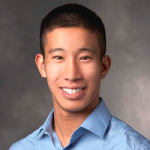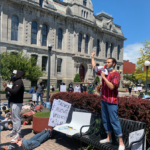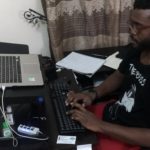Challenges, Changes, and Charting New Courses
In one way or another, the novel coronavirus disease (COVID-19) has affected us all. This disease, responsible for the current global pandemic, is affecting families around the world – the young and the old, teens and young adults, the healthy and the sick – economies, health care systems, and schools across the globe. All are being asked to make sacrifices to protect their fellow humans and those most vulnerable. As this pandemic continues to unfold, we are continually adapting the ways we work, learn, and function as a community. Knowing that staying connected is vital in times of self-isolation and social distancing, we reached out to the IAAH Council and IAAH Young Professionals Network to get their reflections on how COVID-19 has altered their lives. We encourage you to use the #IAAHCOVID19 and share your thoughts and reflections on our IAAH Instagram (@iaahglobal), Twitter (@iaahglobal), or Facebook (@globalIAAH) channels about how COVID-19 has altered your life.
“If I get Corona, I get Corona.” Effective Messaging to Young Adults during COVID-19 “If I get corona, I get corona. At the end of the day I’m not going to let it stop me from partying,” declared Brady Sluder, a college student celebrating spring break in Miami. My social media feed has exploded with chastisements of young adults who are ignoring public health advice advocating for social distancing. In particular, I hear these concerns from my retired parents and older neighbors, who worry that their own health will be sacrificed because of the recklessness of young adults. As a physician specializing in adolescent and young adult medicine, I believe that young people are actually in the best position to weather this period of distant socializing because of their fluency with technology as core to their social networking and engagement. However, some young adults may not be listening to public health advice because we are not effectively communicating in ways that resonate with them.
“If I get corona, I get corona. At the end of the day I’m not going to let it stop me from partying,” declared Brady Sluder, a college student celebrating spring break in Miami. My social media feed has exploded with chastisements of young adults who are ignoring public health advice advocating for social distancing. In particular, I hear these concerns from my retired parents and older neighbors, who worry that their own health will be sacrificed because of the recklessness of young adults. As a physician specializing in adolescent and young adult medicine, I believe that young people are actually in the best position to weather this period of distant socializing because of their fluency with technology as core to their social networking and engagement. However, some young adults may not be listening to public health advice because we are not effectively communicating in ways that resonate with them.
Nagata JM. (epub) Supporting youth adults to rise to the challenges of COVID-19. Journal of Adolescent Health, 2020 May 13. https://doi.org/10.1016/j.jadohealth.2020.04.020
Jason Nagata – IAAH Young Professionals Network (YPN) Co-Chair – North America Region
Economic Struggles for an Island Nation As we approach the fifth month of societal adjustment and physical restrictions, territories within the Caribbean continue to grapple with the impending economic catastrophe to our islands due to losses in our main income generator – tourism. Despite small populations and majority middle income status, most countries are navigating the COVID-19 pandemic quite successfully, from acute healthcare management and mortality perspectives. Immediate social policies and closed borders are keeping our islands contained and the diagnosed cases controlled until recovery. Overall our mortality rates remain low compared to global numbers.Caribbean adolescents and youth have been given opportunities to voice their experiences through virtual spaces and webinars developed by PAHO. Their narratives reflect the primary concerns of young people; the impact on education, the disparities in access to technology, worsened state of mental health among youth due to isolation, unmet mental health service needs, and exposure to violence in their homes during lockdowns. As a care provider, I have noted similar recent trends and am innovating my clinical practice to utilize telemedicine and provide virtual adolescent health consultations. Mental health is rapidly emerging as the next post-pandemic priority for youth of the region and recovery strategies are being developed in earnest.
As we approach the fifth month of societal adjustment and physical restrictions, territories within the Caribbean continue to grapple with the impending economic catastrophe to our islands due to losses in our main income generator – tourism. Despite small populations and majority middle income status, most countries are navigating the COVID-19 pandemic quite successfully, from acute healthcare management and mortality perspectives. Immediate social policies and closed borders are keeping our islands contained and the diagnosed cases controlled until recovery. Overall our mortality rates remain low compared to global numbers.Caribbean adolescents and youth have been given opportunities to voice their experiences through virtual spaces and webinars developed by PAHO. Their narratives reflect the primary concerns of young people; the impact on education, the disparities in access to technology, worsened state of mental health among youth due to isolation, unmet mental health service needs, and exposure to violence in their homes during lockdowns. As a care provider, I have noted similar recent trends and am innovating my clinical practice to utilize telemedicine and provide virtual adolescent health consultations. Mental health is rapidly emerging as the next post-pandemic priority for youth of the region and recovery strategies are being developed in earnest.
Asha Pemberton – IAAH Vice President – Caribbean Region
International Students/Refugees and COVID:19 – Beyond Just Getting Sick Suddenly, I find myself in the nuance of a refugee status, with no aid coming from my home country and relief lacking from a government that ostracizes immigrants, the feeling of not being protected with any safety net is an attribute of statelessness. Students in general are facing the brunt of the pandemic; we’ve lost our on-campus jobs, we’re financially prayed on by our landlords, and for many of us in LGBTQ+ community, we’ve lost our only safe space. Through the difficulties, I am grateful for the mutual aid that has come from my professors and friends. They have dropped off food at my doorstep, lent me their laptops and opened their doors for me after receiving a court order for unpaid rent. I think about how grateful I should be, even though being in America is hard right now, I think about the students in Namibia who don’t even have electricity to charge their cell phones for their ‘E-learning’ classes or those going to bed hungry. So, to that, I say I am grateful – grateful for food on my table and a roof over my head.
Suddenly, I find myself in the nuance of a refugee status, with no aid coming from my home country and relief lacking from a government that ostracizes immigrants, the feeling of not being protected with any safety net is an attribute of statelessness. Students in general are facing the brunt of the pandemic; we’ve lost our on-campus jobs, we’re financially prayed on by our landlords, and for many of us in LGBTQ+ community, we’ve lost our only safe space. Through the difficulties, I am grateful for the mutual aid that has come from my professors and friends. They have dropped off food at my doorstep, lent me their laptops and opened their doors for me after receiving a court order for unpaid rent. I think about how grateful I should be, even though being in America is hard right now, I think about the students in Namibia who don’t even have electricity to charge their cell phones for their ‘E-learning’ classes or those going to bed hungry. So, to that, I say I am grateful – grateful for food on my table and a roof over my head.
Pancho Mulongeni – IAAH Young Professionals Network (YPN) Communication Committee and Eusebio Omar Van Reenen – IAAH YPN Member – North American and Sub-Saharan African Regions
Virtual Work, Virtual Education, Virtual Communication The peak of the COVID-19 epidemic occurred in April in Japan. The introduction of telework has greatly advanced due to this outbreak. Meetings continue to be held virtually instead of face-to-face, with this trend likely to continue even after the epidemic subsides. The vast majority of children struggle to connect with their friends in-person, and instead are spending more time on TV, smartphones, and playing online games. Many schools offered online classes, with children and teens attending classes from home. It seems that for the quieter, less social children, it was easier to participate in the online classes, while more social children struggled without the in-person interaction that a classroom setting provides.
The peak of the COVID-19 epidemic occurred in April in Japan. The introduction of telework has greatly advanced due to this outbreak. Meetings continue to be held virtually instead of face-to-face, with this trend likely to continue even after the epidemic subsides. The vast majority of children struggle to connect with their friends in-person, and instead are spending more time on TV, smartphones, and playing online games. Many schools offered online classes, with children and teens attending classes from home. It seems that for the quieter, less social children, it was easier to participate in the online classes, while more social children struggled without the in-person interaction that a classroom setting provides.
The number of new and total COVID-19 infections has been declining since the beginning of May, and the peak of the first wave of the epidemic seems to have passed. Schools are gradually reopening and the number of people working in-person at business and large corporations are increasing. While watching for the second wave of the COVID-19 epidemic, it is expected that recreational activities such as sports and theater will be carried out little by little. The number of suicides between February and May is clearly lower than last year in Japan. The effects of the COVID-19 epidemic on mental health may emerge only after the economic impact becomes apparent.
Shuntaro Ando – IAAH Vice President – East Asia Region
Working from Home: Pros and Cons
I had always wondered what it would feel like to be able to work from home. Before this period, I had worked from home a couple of times while on a short leave or break, but never for such an extended period at a time. With the confirmation of COVID-19, all Universities within the country were asked to shut down activities. This meant that most of my research work was going to be from home.
 Working from home during this period has been both exciting and boring at the same time. I have tried to summarize the highlights of my experience working during this period with the following points:
Working from home during this period has been both exciting and boring at the same time. I have tried to summarize the highlights of my experience working during this period with the following points:
- Working from home gave me the opportunity to achieve more. With no restrictions of office hours, I was able to exert myself to achieve more.
- Being out of office meant no distractions of impromptu meetings that eats into the day’s work schedule.
- Although working from home helped me achieve more, it also caused a blur between work time, relaxation time, and family time. It took more conscious efforts to be able to get up from my home desk and relax or have time with my family.
- I also missed my lunch break at work. I usually spend my lunch break catching up with friends and colleagues at work. But these days, I take my lunch break at my desk.
- Once in a while I feel lethargic. I get easily distracted by the comfort of being at home at such times and unable to achieve much.
Although, for the most part, I have enjoyed working from home, I wonder if I ever want to return to fully working from an office space. Truthfully, I think I would love an opportunity to enjoy the benefits that both worlds have to offer. I would like to be able to work late into the night and spend the morning sleeping in sometimes. But, being an academic, I would still like to go to a physical place to have contact with my colleagues and students… but not every day.
Emmanuel Adebayo – IAAH Young Professionals Network (YPN) Leadership and Mentorship Committee – Sub-Saharan African Region
Recent Posts
News
About the Author
Jason Nagata, IAAH Young Professionals Network (YPN) Co-Chair
Asha Pemberton, IAAH Vice President, Caribbean Region
Pancho Mulongeni and Eusebio Omar Van Reeneen, IAAH Young Professionals Network
Shuntaro Ando, IAAH Vice President, East Asia Region
Emmanuel Adebayo, IAAH Young Professionals Network
